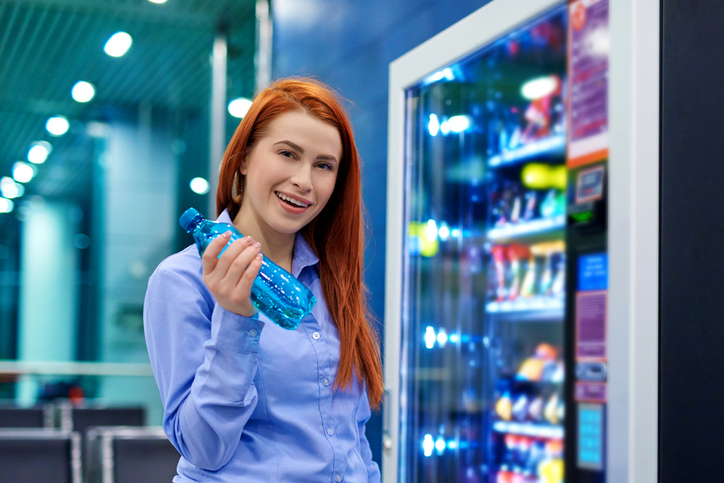Hydration isn’t just about drinking eight glasses of water anymore. Over recent years, a wave of innovative beverages and hydration science has washed into our lives, promising better performance, improved wellness, and even anti-aging benefits. From the rise of alkaline water to the explosion of electrolytes in sports drinks, and the next-gen trend of “functional hydration,” the landscape is anything but flat.
Whether you’re an athlete, a busy professional, or simply someone aiming for radiant health, understanding these hydration trends can help you separate the facts from the fads. Let’s dive into what’s new in hydration, explore the realities behind the claims, and see what might work for you.
Why Hydration Matters More Than Ever
Water is more than just a thirst-quencher—it’s the lifeblood of your body. Every cell, tissue, and organ relies on adequate hydration to perform essential functions, from regulating temperature to flushing out toxins and cushioning joints.
Today’s fast-paced lifestyle, involving travel, exercise, caffeinated beverages, and even climate stress, puts extra demands on our hydration. That’s why new products and trends have emerged, promising smarter, better, and more efficient hydration.
Alkaline Water: What’s the Buzz All About?
The Basics of Alkaline Water
Alkaline water typically has a higher pH (usually 8 or 9) than regular tap water (which sits around pH 7). Its proponents claim that it neutralizes acid in the body, boosts metabolism, and even slows aging.
Science or Hype?
Most scientific evidence does not confirm the boldest claims about alkaline water. While drinking alkaline water isn’t harmful for most people, your body already carefully regulates its internal pH balance. For healthy individuals, your kidneys and lungs handle changes in acidity—making dramatic pH shifts via water unnecessary.
Who Might Benefit?
Some athletes believe that alkaline water helps reduce acid build-up from intense training. Additionally, people with certain acid-related conditions (like acid reflux) may notice mild benefits. Still, for the average person, the main benefit might come simply from drinking more water—regardless of pH.
Electrolyte-Enriched Beverages: More Than a Sports Aid?
What Are Electrolytes and Why Do We Need Them?
Electrolytes are minerals—such as sodium, potassium, calcium, and magnesium—that help regulate fluid balance, nerve signals, and muscle contractions. When you sweat, exercise vigorously, or are ill, you lose electrolytes and need to replace them to maintain optimal performance and avoid dehydration.
Types of Electrolyte Drinks
- Sports Drinks: Crafted for athletes, these drinks contain varying amounts of electrolytes, often with added sugars and flavors.
- Electrolyte Waters: Marketed as a healthful, zero-calorie option without the sugar.
- Powders & Tablets: Convenient for on-the-go hydration, allowing users to add electrolytes to any water bottle.
Pros and Cons
Using electrolyte beverages makes sense after intense exercise, in very hot weather, or if you’re prone to heavy sweating. For everyday use, most people get enough electrolytes from a balanced diet. Consuming sports drinks without needing them can add unwanted sugars and calories, so always check the label.
Beyond Water: Functional Hydration & Next-Gen Trends
Functional Waters
The “functional water” trend covers a broad spectrum, including beverages infusing vitamins, herbs, CBD, probiotics, and more. While some ingredients have proven benefits, others ride more on wellness marketing than robust science.
Coconut Water & Its Rise
Coconut water gained global popularity as a natural electrolyte-rich drink, offering potassium and magnesium with fewer calories and sugars than many sports drinks. It’s a good option post-exercise or as a refreshing mid-day pick-me-up.
Infused Waters: Flavorful and Fun
Infusing water with fruits, herbs, or vegetables not only adds flavor but encourages more frequent consumption. Citrus, berries, cucumber, and mint are popular options, providing a spa-like refreshment while adding trace vitamins and antioxidants.
Hydration for Special Lifestyles
Fitness Enthusiasts and Athletes
Intense physical activity, especially in hot or humid environments, drastically increases fluid and electrolyte needs. Tailor hydration to your sweat rate, activity duration, and individual needs—a sports drink or electrolyte water may be appropriate after prolonged exertion.
Busy Professionals
For those often at desks or in air-conditioned environments, thirst signals can be muted. Creative reminders, a stylish water bottle, or tracking apps can help ensure you regularly hydrate throughout the day.
Frequent Travelers
Long flights and travel can dehydrate you due to dry cabin air and interrupted routines. Carry a reusable bottle, opt for water over caffeinated or alcoholic drinks, and consider electrolyte supplements if traveling in particularly hot climates.
Myths and Misconceptions About Hydration
- Myth: If you’re not thirsty, you don’t need water.
- Reality: Thirst is not always a reliable indicator, especially as you age or in air-conditioned spaces.
- Myth: Sports drinks are essential for everyone.
- Reality: Unless you’re engaging in intense or prolonged exercise, regular water is usually sufficient.
- Myth: More water is always better.
- Reality: Over-hydrating can lead to hyponatremia, a serious drop in blood sodium levels.
Signs of Proper Hydration
- Light yellow or clear urine
- Steady energy levels
- Fewer headaches
- Plump, healthy-looking skin
- Mild or absent thirst
If you’re well-hydrated, your body will perform most tasks more efficiently—including thinking clearly, regulating body temperature, and keeping joints lubricated.
Tips to Stay Hydrated Smartly
- Drink water consistently throughout the day, not just when thirsty.
- Use a refillable bottle and set reminders if you tend to forget.
- Adjust your fluid intake for hot weather, intense activity, or illness.
- Seek foods rich in water, like fruits and vegetables.
- Consider flavor enhancers or infusions if plain water gets boring.
- Reserve electrolyte drinks for when you genuinely need them.
Conclusion: Finding Your Perfect Hydration Routine
Hydration isn’t one-size-fits-all. Trends like alkaline water, electrolytes, and functional beverages offer new ways to personalize and optimize your fluid intake. While the science may not always live up to marketing hype, experimenting within reason and listening to your body can help you stay refreshed, healthy, and energized.
Remember: the best hydration strategy is one you’ll actually stick to. Choose what fits your lifestyle, budget, and tastes—and always prioritize pure, clean water as your foundation.
Ready to take your hydration game to the next level? Start today—try a new flavor infusion, invest in a stylish water bottle, or experiment with electrolyte drinks during your next workout. Your body will thank you!






